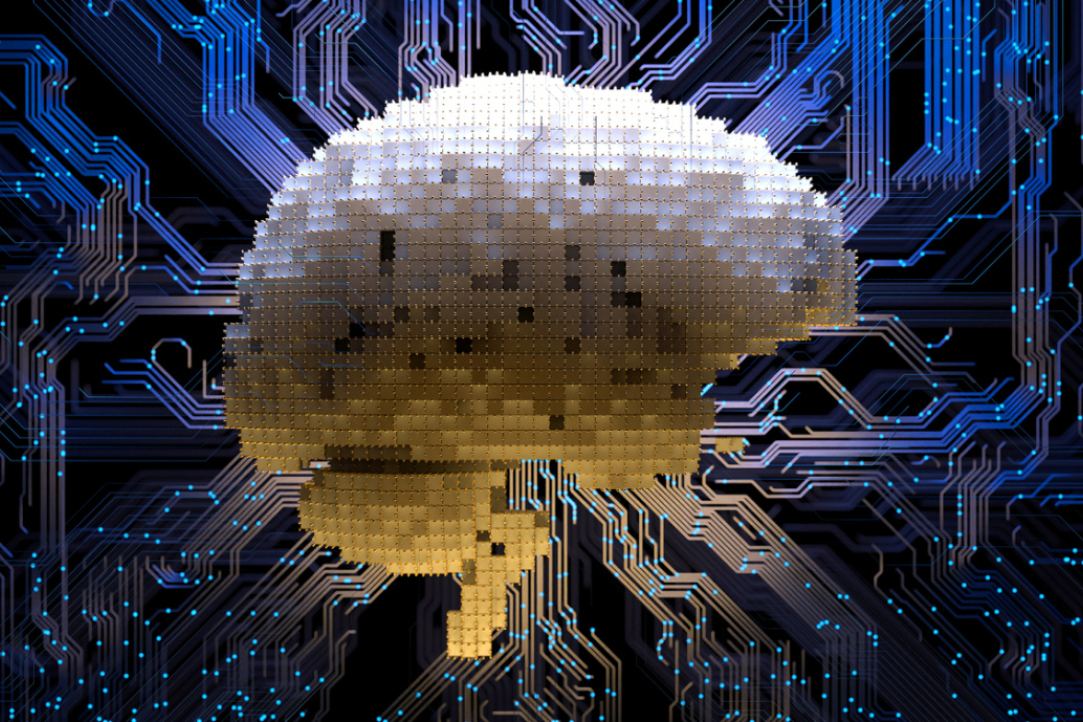‘Like Electricity, AI Can Bring Incredible Benefits’

Developments in the field of artificial intelligence are gradually taking over the world. AI has the potential to bring incredible benefits to the global economy and our quality of life, but it also creates new challenges. Panos Pardalos, Professor at the University of Florida, Academic Supervisor of the Laboratory of Algorithms and Technologies for Networks Analysis (Nizhny Novgorod), covered these issues, along with other related topics, in his recent report.
Panos Pardalos presented a report on artificial Intelligence for economics and finance, with Fuad Aleskerov, Director of the International Centre of Decision Choice and Analysis, moderating the event. Professor Pardalos compared the invention of artificial intelligence to the invention of electricity.

Panos Pardalos
‘Technology helps us to expand our capabilities and boundaries, allowing us to overcome our biological constraints. In recent years, we have been talking a lot about the augmented reality machine interface, and artificial intelligence performs cognitive actions similar to human ones — learning, understanding, reasoning and interaction. Therefore, I think it's better to call it added or augmented intelligence. This is a new field, a tool that, whether we like it or not, has the same effect on us as electricity did when it was discovered. Like electricity, which has transformed every aspect of our lives, AI can bring incredible benefits to the global economy and our quality of life. However, there are also concerns that AI, like any other technology, can create new challenges and aggravate existing problems.’
The speaker said that artificial intelligence is now considered as national priority. The USA, Canada, China, France and many other countries have adopted national AI strategies. The government realises that the successful integration of AI in various fields will stimulate the economy and be an influential tool.
Today, most AI-related patent applications to the World Intellectual Property Organization (WIPO) have been submitted in the United States and China. China is ready to take a leading position in the field of AI research and application, and to this end the government has already invested billions of dollars in this area and approved a national plan for AI dominance. Back in 2017, China presented its Artificial Intelligence Development Plan (AIDP), designed to transform the country into a global superpower by 2030, which will surpass competitors and become ‘the world's leading innovation centre in the field of artificial intelligence.’
Advances in machine learning, data science and other fields are developing rapidly and show great potential, stressed Panos Pardalos. The impressive success of these fields can be partly explained by their complex mathematical foundations (for example, optimisation techniques and operation research tools), although this important aspect is often underestimated.

Panos Pardalos spoke on the active work on AI-based approaches for applications in agriculture, manufacturing, and finance. Thus, researchers are working on methods of implementing neural networks to detect semantic changes in annual reports of companies, and the impact of changes on the future profitability of the company.
In addition, they are studying the potential of machine learning for predicting bankruptcy in the stock market. Following the financial crisis of 2007-2008, forecasting corporate bankruptcy is a priority for most financial institutions and academia.
Neural networks should be preferred among all machine learning models for predicting bankruptcy, says Panos Pardalos. However, training and designing a neural network is usually difficult and requires a lot of computing time, higher costs and more experiments compared to other models.
Speaking about the economics, many people feel optimistic about AI technologies, but at the same time there are quite serious risks, says the speaker. ‘Technology changes our life greatly, and we need to be careful, because every new tool may be used correctly, or may be abused, that is, it can be used for good or for harm. Anything can be used as a weapon, and this weapon will decide who to shoot. These risks are currently underestimated, the answers to such questions should not be simplified,’ explained the expert. The development of technology should take place in parallel with the development of people. So far, there is a lot of uncertainty about what the consequences of using artificial intelligence will be.
See also:
‘Many Want to Create AI-Based Products and Become More Competitive’
In 2024, the online Russian-taught master’s programme ‘Artificial Intelligence,’ offered by the HSE Faculty of Computer Science, saw a record number of first-year students—over 300. What accounts for such a high interest in AI, how the curriculum is structured, and what new skills will graduates acquire? Elena Kantonistova, the programme’s academic director, shares more.
'I Would Like to Leave a Lasting Impact on Science'
Aibek Alanov pursues his own scientific research and leads two teams of scientists, one at HSE University and the other at AIRI. In this interview for the HSE Young Scientists project, he explores the parallels between today's AI researchers and early 20th-century physicists, discusses generative models, and shares his passion for bachata partner dancing.
HSE’S Achievements in AI Presented at AIJ
The AI Journey international conference hosted a session led by Deputy Prime Minister Dmitry Chernyshenko highlighting the achievements of Russian research centres in artificial intelligence. Alexey Masyutin, Head of the HSE AI Research Centre, showcased the centre’s key developments.
Drivers of Progress and Sources of Revenue: The Role of Universities in Technology Transfer
In the modern world, the effective transfer of socio-economic and humanities-based knowledge to the real economy and public administration is essential. Universities play a decisive role in this process. They have the capability to unite diverse teams and, in partnership with the state and businesses, develop and enhance advanced technologies.
AI on Guard of Ecology: Students from Russia and Belarus Propose New Solutions to Environmental Problems
An international online hackathon dedicated to solving environmental problems was held at HSE University in Nizhny Novgorod. Students employed artificial intelligence and computer vision to develop innovative solutions for image segmentation, predictive modelling (forecasting future events based on data from the past) of emissions and creating chatbots for nature reserves and national parks.
Taming the Element: How AI Is Integrating into the Educational Process Around the World
Artificial intelligence is gradually becoming an indispensable part of higher education. Both students and teachers use it to reduce the volume of routine tasks and expand their capabilities. The limitations and prospects of AI are discussed in the report ‘The Beginning of the End or a New Era? The Effects of Generative Artificial Intelligence (GAI) in Higher Education,’ published in the journal Modern Education Analytics, under the scientific supervision of HSE Academic Supervisor Yaroslav Kuzminov.
A New Tool Designed to Assess AI Ethics in Medicine Developed at HSE University
A team of researchers at the HSE AI Research Centre has created an index to evaluate the ethical standards of artificial intelligence (AI) systems used in medicine. This tool is designed to minimise potential risks and promote safer development and implementation of AI technologies in medical practice.
HSE Researchers Develop Novel Approach to Evaluating AI Applications in Education
Researchers at HSE University have proposed a novel approach to assessing AI's competency in educational settings. The approach is grounded in psychometric principles and has been empirically tested using the GPT-4 model. This marks the first step in evaluating the true readiness of generative models to serve as assistants for teachers or students. The results have been published in arXiv.
‘Philosophy Is Thinking Outside the Box’
In October 2024, Louis Vervoort, Associate Professor at the School of Philosophy and Cultural Studies of the Faculty of Humanities presented his report ‘Gettier's Problem and Quine's Epistemic Holism: A Unified Account’ at the Formal Philosophy seminar, which covered one of the basic problems of contemporary epistemology. What are the limitations of physics as a science? What are the dangers of AI? How to survive the Russian cold? Louis Vervoort discussed these and many other questions in his interview with the HSE News Service.
HSE Scientists Propose AI-Driven Solutions for Medical Applications
Artificial intelligence will not replace medical professionals but can serve as an excellent assistant to them. Healthcare requires advanced technologies capable of rapidly analysing and monitoring patients' conditions. HSE scientists have integrated AI in preoperative planning and postoperative outcome evaluation for spinal surgery and developed an automated intelligent system to assess the biomechanics of the arms and legs.


